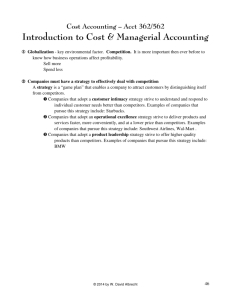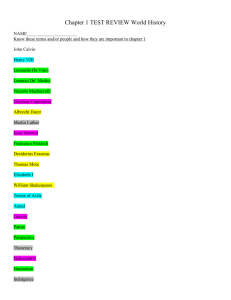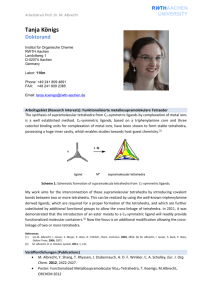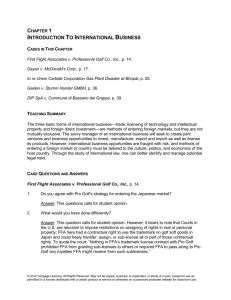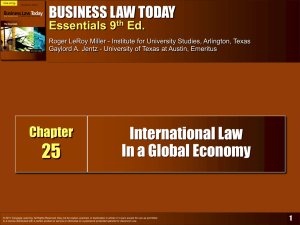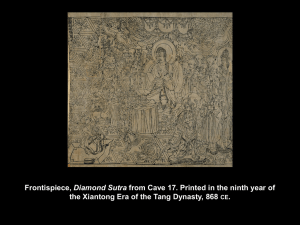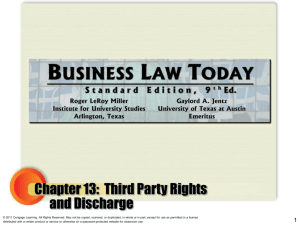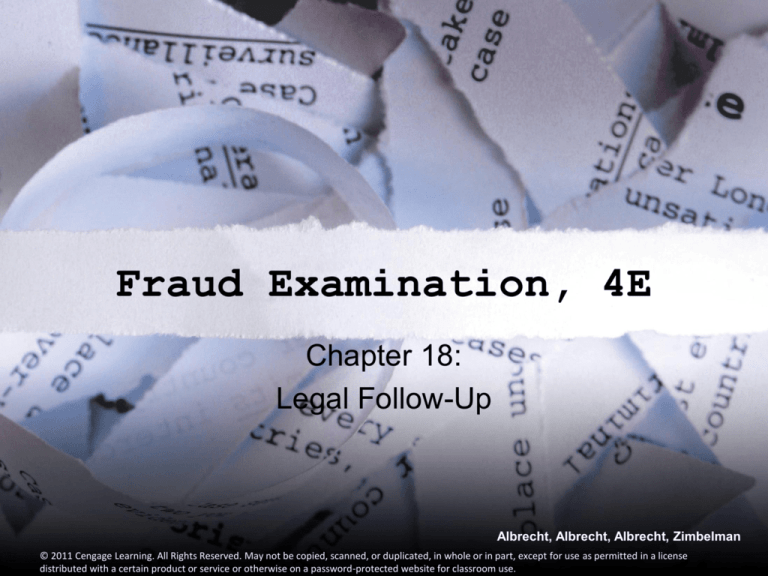
Fraud Examination, 4E
Chapter 18:
Legal Follow-Up
Albrecht, Albrecht, Albrecht, Zimbelman
© 2011 Cengage Learning. All Rights Reserved. May not be copied, scanned, or duplicated, in whole or in part, except for use as permitted in a license
distributed with a certain product or service or otherwise on a password-protected website for classroom use.
Learning Objectives
Identify important aspects
of the court system.
Understand the civil
litigation process.
Understand the criminal
litigation process.
Describe the nature of an
expert witness.
Albrecht, Albrecht, Albrecht, Zimbelman
© 2011 Cengage Learning. All Rights Reserved. May not be copied, scanned, or duplicated, in whole or in part, except for use as permitted in a license
distributed with a certain product or service or otherwise on a password-protected website for classroom use.
The Court System
State Courts
Can handle nearly every type of case.
Governed by:
The U.S. Constitution
The state’s constitution
The state’s laws
Generally handle most fraud cases.
Albrecht, Albrecht, Albrecht, Zimbelman
© 2011 Cengage Learning. All Rights Reserved. May not be copied, scanned, or duplicated, in whole or in part, except for use as permitted in a license
distributed with a certain product or service or otherwise on a password-protected website for classroom use.
The Court System
State Courts—Lower-level trial courts
Handle trials for:
Misdemeanors (small crimes)
Preliminaries (pretrial issues)
Below some dollar amount ($10,000)
Some types include…
Housing courts
Small claims courts
Probate courts
Albrecht, Albrecht, Albrecht, Zimbelman
© 2011 Cengage Learning. All Rights Reserved. May not be copied, scanned, or duplicated, in whole or in part, except for use as permitted in a license
distributed with a certain product or service or otherwise on a password-protected website for classroom use.
The Court System
State Courts—Higher-level trial courts
Handle trials for/having:
Above the lower level dollar amount ($10,000)
More serious crimes than those handles in the lowerlevel trial courts
Albrecht, Albrecht, Albrecht, Zimbelman
© 2011 Cengage Learning. All Rights Reserved. May not be copied, scanned, or duplicated, in whole or in part, except for use as permitted in a license
distributed with a certain product or service or otherwise on a password-protected website for classroom use.
The Court System
State Courts—Appellate Courts
Plaintiffs or defendants who are not satisfied with
the outcomes of lower or higher trial courts can
appeal court decisions to appellate or reviewing
courts.
Have low- and high-level appellate courts.
Decision made at the high-level appellate courts
are final.
Albrecht, Albrecht, Albrecht, Zimbelman
© 2011 Cengage Learning. All Rights Reserved. May not be copied, scanned, or duplicated, in whole or in part, except for use as permitted in a license
distributed with a certain product or service or otherwise on a password-protected website for classroom use.
Organization of State Courts
Albrecht, Albrecht, Albrecht, Zimbelman
© 2011 Cengage Learning. All Rights Reserved. May not be copied, scanned, or duplicated, in whole or in part, except for use as permitted in a license
distributed with a certain product or service or otherwise on a password-protected website for classroom use.
The Court System
Federal Courts
Handle cases the U.S.
Constitution or federal laws
give authority.
Handle court cases that
involve federal laws or
include several states.
Albrecht, Albrecht, Albrecht, Zimbelman
© 2011 Cengage Learning. All Rights Reserved. May not be copied, scanned, or duplicated, in whole or in part, except for use as permitted in a license
distributed with a certain product or service or otherwise on a password-protected website for classroom use.
The Court System
Federal Courts
The federal courts are established to enforce
federal laws and statutes.
Types of federal courts include:
Bankruptcy courts
Tax courts
Albrecht, Albrecht, Albrecht, Zimbelman
© 2011 Cengage Learning. All Rights Reserved. May not be copied, scanned, or duplicated, in whole or in part, except for use as permitted in a license
distributed with a certain product or service or otherwise on a password-protected website for classroom use.
The Court System
Federal Courts
Most fraud cases involving federal laws or statutes
(such as mail fraud, violations of the RICO Act,
banking, and securities regulations) are tried in Federal
Courts.
Albrecht, Albrecht, Albrecht, Zimbelman
© 2011 Cengage Learning. All Rights Reserved. May not be copied, scanned, or duplicated, in whole or in part, except for use as permitted in a license
distributed with a certain product or service or otherwise on a password-protected website for classroom use.
Organization of Federal
Courts
Albrecht, Albrecht, Albrecht, Zimbelman
© 2011 Cengage Learning. All Rights Reserved. May not be copied, scanned, or duplicated, in whole or in part, except for use as permitted in a license
distributed with a certain product or service or otherwise on a password-protected website for classroom use.
Civil and Criminal Fraud
Trials
Individuals who commit
fraud can be prosecuted
criminally, civilly, or both.
Many times, a defrauded
company will not pursue a
case in criminal or civil
court in order to avoid
additional expenses and
negative public exposure.
Albrecht, Albrecht, Albrecht, Zimbelman
© 2011 Cengage Learning. All Rights Reserved. May not be copied, scanned, or duplicated, in whole or in part, except for use as permitted in a license
distributed with a certain product or service or otherwise on a password-protected website for classroom use.
Civil and Criminal Fraud
Trials
Criminal vs. Civil Law
Criminal Law:
Involves laws that deal with offenses of a public nature
and are generally considered to be offenses against
society as a whole.
Civil Law:
Body of law that provides remedies for violations of
private right.
Albrecht, Albrecht, Albrecht, Zimbelman
© 2011 Cengage Learning. All Rights Reserved. May not be copied, scanned, or duplicated, in whole or in part, except for use as permitted in a license
distributed with a certain product or service or otherwise on a password-protected website for classroom use.
The Civil Litigation Process
Most fraud cases follow
four stages:
Investigation and pleadings
Discovery
Motion practice and
negotiation
Trial and appeal.
Albrecht, Albrecht, Albrecht, Zimbelman
© 2011 Cengage Learning. All Rights Reserved. May not be copied, scanned, or duplicated, in whole or in part, except for use as permitted in a license
distributed with a certain product or service or otherwise on a password-protected website for classroom use.
The Civil Litigation Process
Investigation and Pleadings
Initial Pleading/Complaint:
Explains the alleged violation of the law and the
monetary expenses or damages sought in the case.
Motion:
An objection to the plaintiff’s complaint that the points
out defect of the case and asks for a specific remedy.
Albrecht, Albrecht, Albrecht, Zimbelman
© 2011 Cengage Learning. All Rights Reserved. May not be copied, scanned, or duplicated, in whole or in part, except for use as permitted in a license
distributed with a certain product or service or otherwise on a password-protected website for classroom use.
The Civil Litigation Process
Remedy:
May include dismissal of all or part of the original
complaint.
Answer:
The response to the complaint that denies or
admits various allegations.
Albrecht, Albrecht, Albrecht, Zimbelman
© 2011 Cengage Learning. All Rights Reserved. May not be copied, scanned, or duplicated, in whole or in part, except for use as permitted in a license
distributed with a certain product or service or otherwise on a password-protected website for classroom use.
The Civil Litigation Process
Discovery
The legal process by which each party’s attorneys try to
gain information about the other side’s case before the
trial begins.
Includes:
Production Requests , Interrogatories, Requests for Admission,
Subpoenas, Depositions, Motion Practice and Negotiation
Albrecht, Albrecht, Albrecht, Zimbelman
© 2011 Cengage Learning. All Rights Reserved. May not be copied, scanned, or duplicated, in whole or in part, except for use as permitted in a license
distributed with a certain product or service or otherwise on a password-protected website for classroom use.
The Criminal Litigation
Process
Seven steps:
Filing criminal charges
Arresting and charging the defendant
Preliminary hearings
Arraignment
Discovery
Pretrial motions
Trial and appeal
Albrecht, Albrecht, Albrecht, Zimbelman
© 2011 Cengage Learning. All Rights Reserved. May not be copied, scanned, or duplicated, in whole or in part, except for use as permitted in a license
distributed with a certain product or service or otherwise on a password-protected website for classroom use.
The Criminal Litigation
Process
Filing Criminal Charges
The victim of the fraud contacts the district attorney for
the county in which the fraud was perpetrated.
The district attorney coordinates with the local police in
the preparation of an arrest warrant or summons.
If the case involves a federal crime, notice is also sent
to the U.S. Attorney’s Office.
Albrecht, Albrecht, Albrecht, Zimbelman
© 2011 Cengage Learning. All Rights Reserved. May not be copied, scanned, or duplicated, in whole or in part, except for use as permitted in a license
distributed with a certain product or service or otherwise on a password-protected website for classroom use.
The Criminal Litigation
Process
Arresting and Charging the Defendant
Fourth Amendment:
Requires that probable cause exist before a defendant
is arrested or searched.
Fifth Amendment
Requires an indictment of a grand jury before a
defendant is held for a capital crime (one where the
death penalty or other certain punishments are
possible).
Albrecht, Albrecht, Albrecht, Zimbelman
© 2011 Cengage Learning. All Rights Reserved. May not be copied, scanned, or duplicated, in whole or in part, except for use as permitted in a license
distributed with a certain product or service or otherwise on a password-protected website for classroom use.
The Criminal Litigation
Process
Fifth Amendment (cont.)
Precludes a person from being tried twice for the same
crime.
Gives the defendant the right to refuse to incriminate
him- or herself.
Requires the state to apply due process of law.
Forbids the state from taking a private party’s property
without compensation.
Albrecht, Albrecht, Albrecht, Zimbelman
© 2011 Cengage Learning. All Rights Reserved. May not be copied, scanned, or duplicated, in whole or in part, except for use as permitted in a license
distributed with a certain product or service or otherwise on a password-protected website for classroom use.
The Criminal Litigation
Process
Preliminary Hearings
Purpose is to determine
whether “probable cause”
exists to charge the
defendant with a crime—not
to establish his or her guilt
or innocence.
Albrecht, Albrecht, Albrecht, Zimbelman
© 2011 Cengage Learning. All Rights Reserved. May not be copied, scanned, or duplicated, in whole or in part, except for use as permitted in a license
distributed with a certain product or service or otherwise on a password-protected website for classroom use.
The Criminal Litigation
Process
Arraignment
The charges against the defendant are read.
The defendant may plead guilty, not guilty, or nolo
contendere.
A trial is held and bail is set if the defendant pleads not
guilty.
Sentencing follows when the defendant pleads guilty or
nolo contendere.
Albrecht, Albrecht, Albrecht, Zimbelman
© 2011 Cengage Learning. All Rights Reserved. May not be copied, scanned, or duplicated, in whole or in part, except for use as permitted in a license
distributed with a certain product or service or otherwise on a password-protected website for classroom use.
The Criminal Litigation
Process
Pretrial Motions
Two motions that are frequently made include:
A request that the charges be dismissed as a matter of
law.
A request to suppress certain evidence because it was
illegally obtained.
Albrecht, Albrecht, Albrecht, Zimbelman
© 2011 Cengage Learning. All Rights Reserved. May not be copied, scanned, or duplicated, in whole or in part, except for use as permitted in a license
distributed with a certain product or service or otherwise on a password-protected website for classroom use.
The Nature of an Expert
Witness
An expert witness is an
individual who has unique
experience, education, or
training regarding a
subject and can offer
opinions about it.
Albrecht, Albrecht, Albrecht, Zimbelman
© 2011 Cengage Learning. All Rights Reserved. May not be copied, scanned, or duplicated, in whole or in part, except for use as permitted in a license
distributed with a certain product or service or otherwise on a password-protected website for classroom use.


